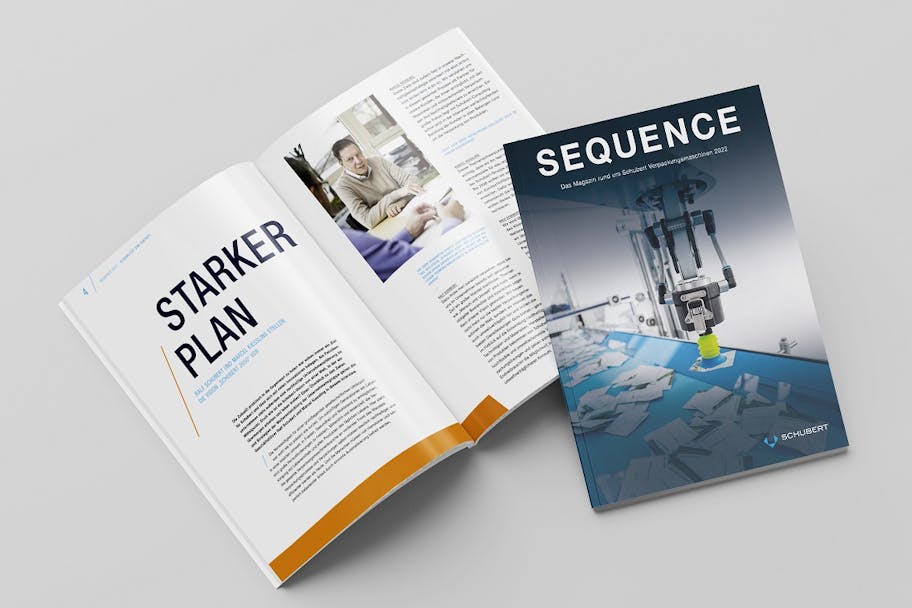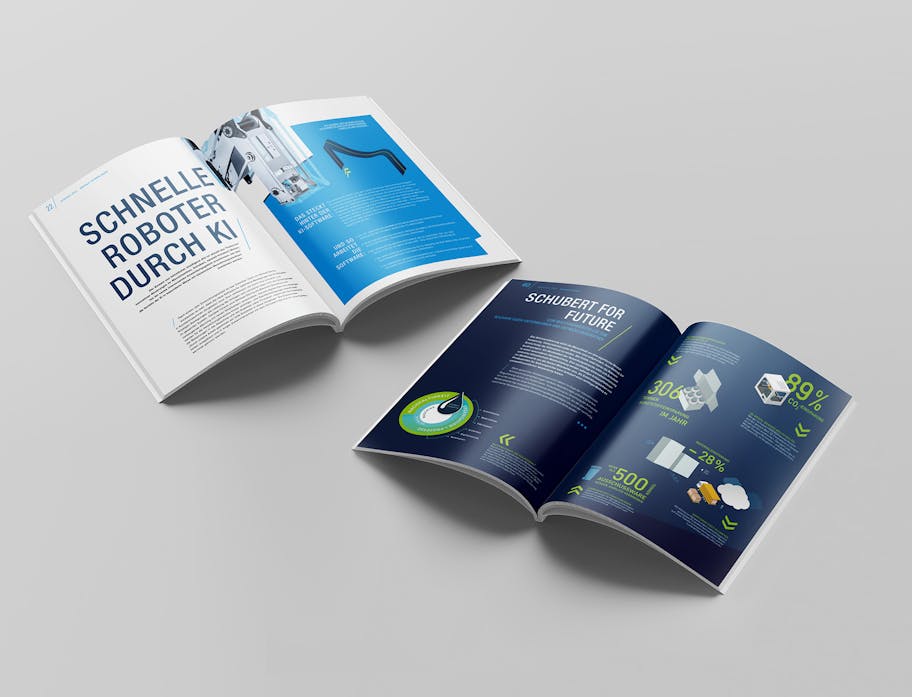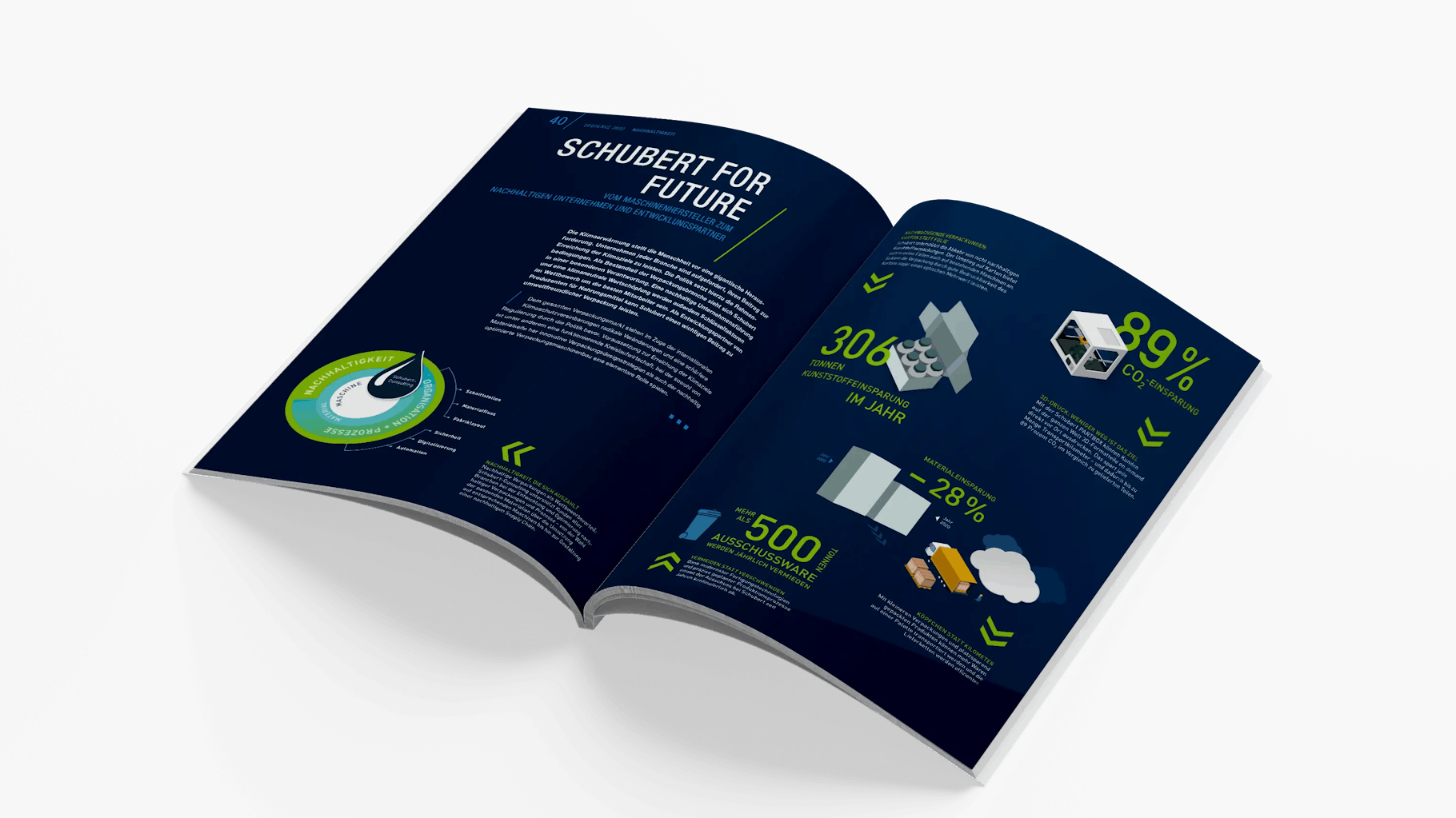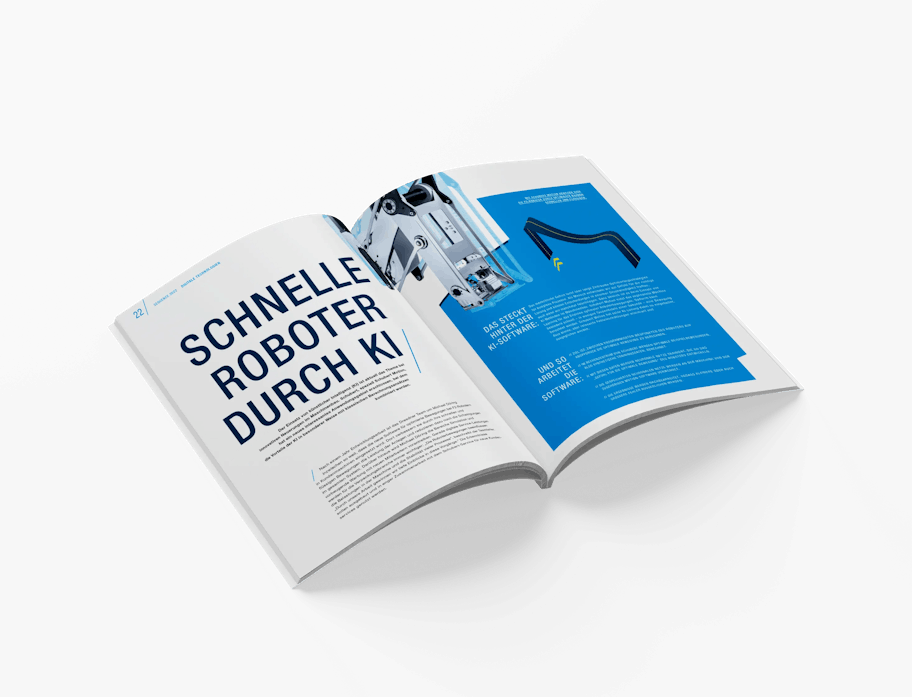The fascination of corporate publishing for B2B

Defying all digital formats, established corporate publishing formats such as customer magazines or high-quality brochures are successfully defending their position in the cross-media marketing mix and continue to be highly valued by customers. A prime example of this is the latest issue of Sequence, the customer magazine published by our long-standing client Gerhard Schubert Verpackungsmaschinen in Crailsheim.
18 years of the Sequence publication
- A yearly customer magazine
- 80 pages, DE/EN
- Circulation of 10,000 units
- Central topic: Vision 2050
- Services provided by the Ruess Group: Copywriting, images, design, translation and production
More cross-media networking than ever

The common thread
For over 40 years, we have been supporting the global market leader in packaging machines with their international marketing. And for a good 19 years, we have also been responsible for corporate publishing, including images, layout and design, translation and production of the Sequence customer magazine – all from a single source and a cornerstone of the Ruess Group's successful corporate publishing projects.
The current issue with Schubert’s Vision 2050 as main topic comprises some 30 articles, 90 images and graphics. Numerous QR codes lead to more detailed information and videos on the Schubert website and on YouTube. For this broad range of topics, our experts from the disciplines of editorial, creation and production, through to media and digital services worked closely with several specialists and members of management on the client side. And all of them strictly followed the so-called common thread in the editorial plan.
To ensure that the company itself as well as business partners and customers feel equally spoken to, attention is also paid to an authentic and straightforward style – with many original quotes from participating Schubert Group companies, their employees and contacts. This helps ensure that the annual corporate publishing magazine is not perceived as an advertising tool, but rather as a sound work of reference that readers enjoy leafing through again and again. This generates interest in new offers, services and support.

Meta-topic: Sustainability

The new generation
In addition to technological advances, this issue also clearly focuses on the people working at Schubert, their ideas for the future, how they are tackling current challenges and their deeply felt responsibility for people and the environment.
In extensive interviews with Managing Directors Marcel Kiessling and Ralf Schubert, the reader is given background information on Schubert’s Vision 2050 and the company’s sustainability strategy. In the various articles about technology, for example, the developers of the new Cobot are given a chance to speak as well as external experts on the circular economy. The third generation, Peter and Johannes Schubert, also describe their views on the topics of family businesses and generational change, new approaches to work and the importance of networking in the region.

